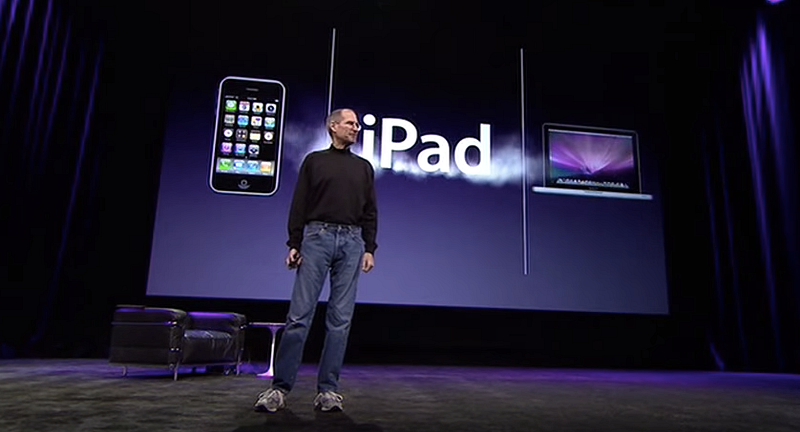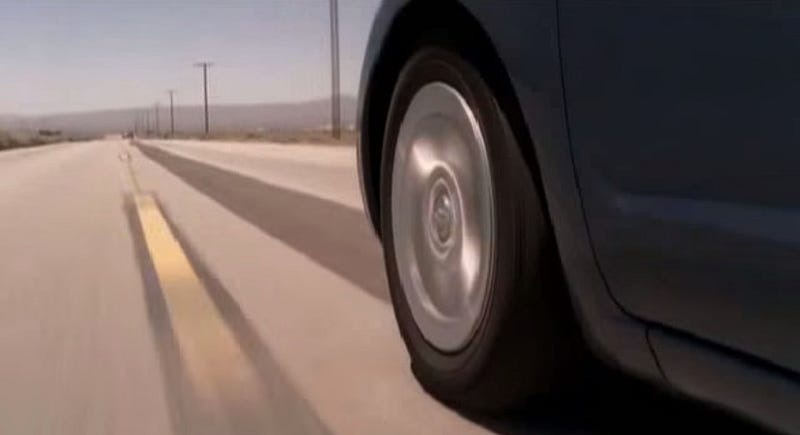filtered, week of sep 1 2014
anchors
Assume for a minute that all the readers of tea leaves (and The New York Times) are correct, and Apple will, in fact, introduce an iWatch device on Tuesday. If you compare this to Apple’s major product introductions, the degree of difficulty on this one will be high. Very high.
Over the past 30 years, when introducing each of their major product lines, Steve Jobs would anchor consumer perception by comparing their great new product against some clearly inferior piece of impossible-to-use technology that consumers didn’t know they hated.
- Macintosh was compared to the IBM PC (“1984 won’t be like 1984”).
- iPod was compared to the current crop of MP3 players for the early adopters, and the Sony Walkman for everyone else (“your entire music library in your pocket”).
- iPhone was compared to button-filled smartphones for the early adopters, and regular cellphones for everyone else (“iPod + phone + Internet communicator”).
- iPad was a bit of anomaly in that there wasn’t a clear substitute, but Jobs set the netbook as the straw man comparison, and then positioned the iPad right between the iPhone and the Macbook to create a new product category.

iPad positioning
Anchoring perception of the iWatch by comparing it to existing products you can put on your wrist is going to be very hard:
- They will likely compare the new product to today’s wearables. This may resonate with early adopters, but to me this feels like a straw man. The wearable market (fitness trackers, smart watches) is super early, and I’d argue that the whole category has yet to find a real problem to solve for most consumers. People that don’t have one probably couldn’t come up with a reason to own one.
- And of course they could compare the new product to plain old watches, but the people that are still wearing them on a daily basis probably aren’t doing it just to tell the time. They’re wearing them for fashion, status, nostalgia, etc. A functional comparison of how much better the iWatch is than the watch handed down to you by your grandfather won’t hold water. For an example of how awkward such positioning can be, check out Motorola’s site for the Moto360. “It’s time a watch told you more than just the time.” Oh, really? It’s time? Nice pun.
I’ve watched a bunch of the Steve Jobs product introduction videos this week, and one of the hallmarks of how he presents is how obvious he makes the products seem. “Here’s a thing everyone does; the way everyone does it today is shit; so we made something better, something great. And we think you’re going to love it too.” (Applause.) I have no doubt the iWatch will be an interesting product, but given the current rumors it’s difficult for me to see how it’s an obvious product. That, combined with the lack of a substantial product to anchor perception against makes Tuesday’s introduction must-watch theater.
Sure I had gangsters in space. I’m convinced as soon as they’ve established valuable minerals that can be mined in space, there will be gangsterism in space. I irritated NASA a great deal because I brought out things they will be doing in space one of these days.
Chester Gould, in an excellent history of Dick Tracy, who apparently went to space at some point in the series. Must have missed that.
I’m working on a story about congressional oversight of drone strikes that can present a good opportunity for you guys.
Former LA Times / current AP reporter Ken Dilanian, in an email to a CIA press officer.
wolves
If you build software for a living (or otherwise), go read these three posts.
- @rands: The Wolf
- @kellan: “Wolf” narrative considered harmful (also biologically unlikely)
- @codinghorror (from 2004): Commandos, Infantry and Police
Note: wolf PMs (narrative or otherwise) should be considered harmful.
bloggers
Brent Simmons (amazing blogger, not sure if he’s a wolf) wrote this last week:
My blog’s older than Twitter and Facebook, and it will outlive them. It has seen Flickr explode and then fade.
And I had a whole bunch of things to say in response to that, which basically came down to “for me blogging as writing habits > blogging as artifact,” and then Craig Mod came along with This is How We Publish and braindumped a bunch of his thoughts coming out of IndieWeb, about the arguments of why to publish on sites like Medium v. crafting your own home. I’ll quote just one side of the argument to justify what I’m doing here:
If you have a home, why publish elsewhere? Why not put everything on that home to begin with? Simple: To work with new people, to connect to new audiences. To broaden the scale and breadth of your voice. To stand upon the soapboxes that publications offer. To collect dissenting opinions. To see what couldn’t be seen without the help of an editor or gang of skeptics willing to look over your shoulder, pointing you in directions you considered but were too meek to explore. Mainly, to write better and with greater empathy.
And, of course, this:


I cry when I hear the song. It’s Pavlovian. If it comes on when I’m at yoga or something, I’ll cry. I’m always worried people will notice and be like, Oh, is that the girl from the show?
Lauren Ambrose, who played Claire Fisher in Six Feet Under, on Sia’s Breathe Me. I heard it in a coffee shop the other day, and it’s absolutely Pavlovian (even the Four Tet remix). The quote’s from Vulture’s great oral history of the last scene of Six Feet Under, which somehow I missed when it was published last December.
in heavy rotation.
Spoon, They Want My Soul (probably at least 2–3x a week since it came out last month); Peter Gregson, Lights in the Sky (via @robinsloan); Neil Young, Live at the Cellar Door (thanks to a friend who was playing a vinyl copy over the Labor Day weekend). Still making my way through Siri Hustvedt’s The Blazing World (60% of the way through; it didn’t set its hook until about 30%); David Mitchell’s The Bone Clocks (!) is next in the queue.
got feedback?
Leave me a note here, email me, tweet at me, whatever. And I’ll see you next Friday?